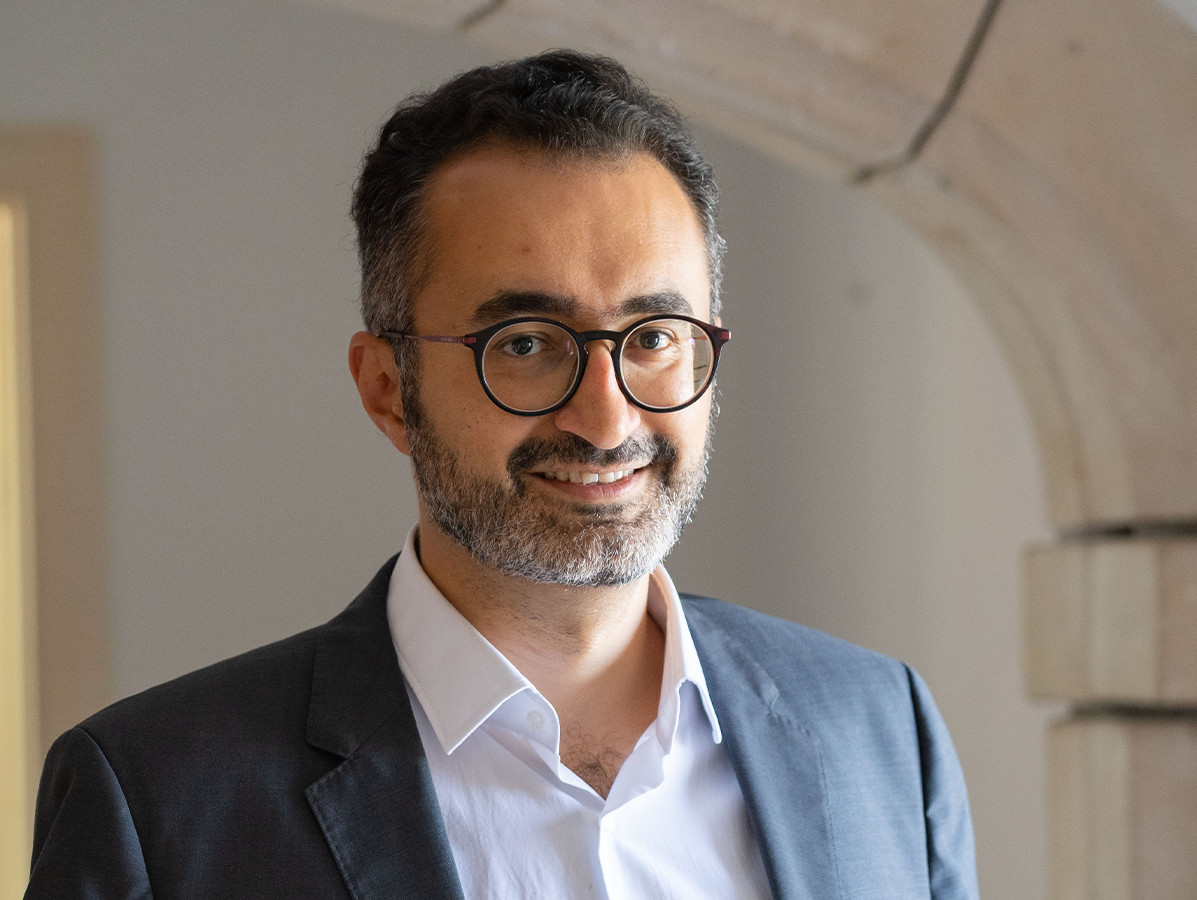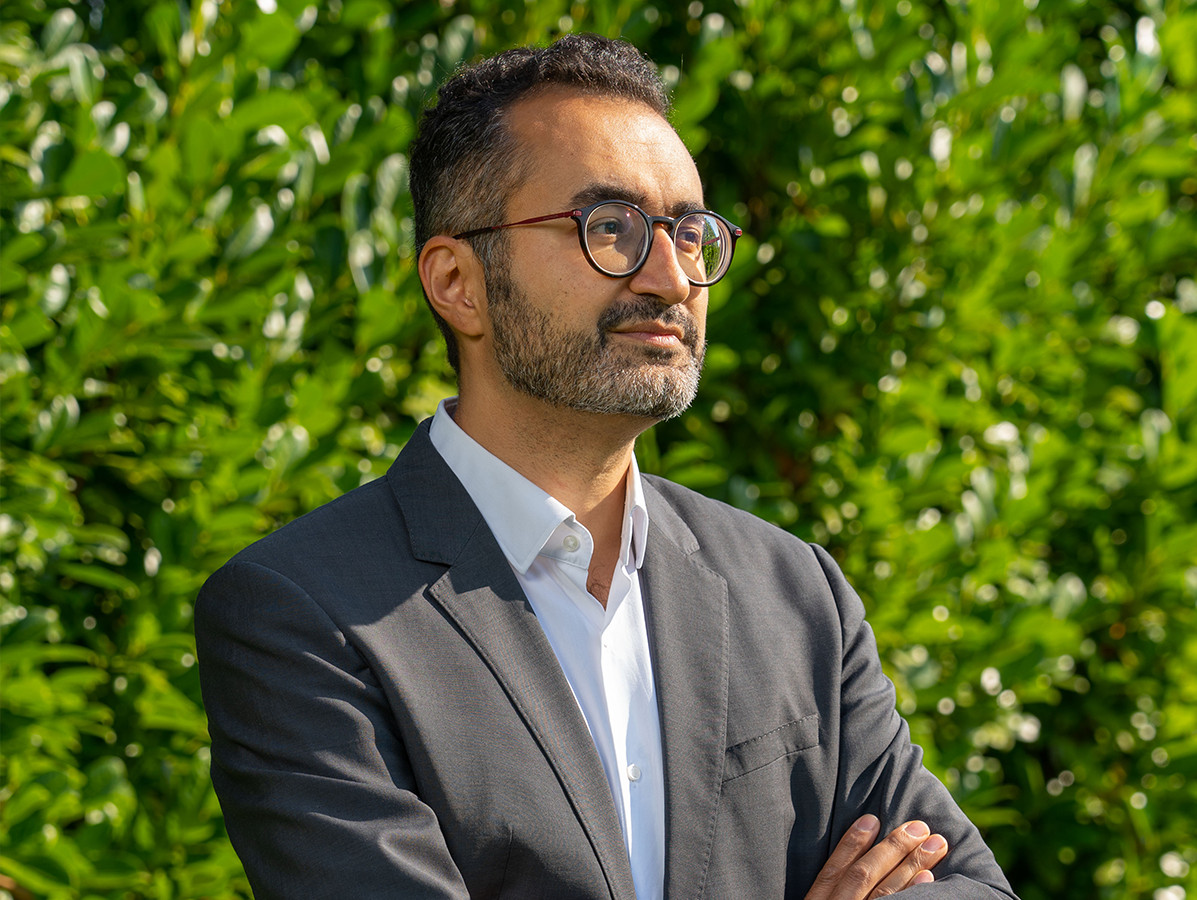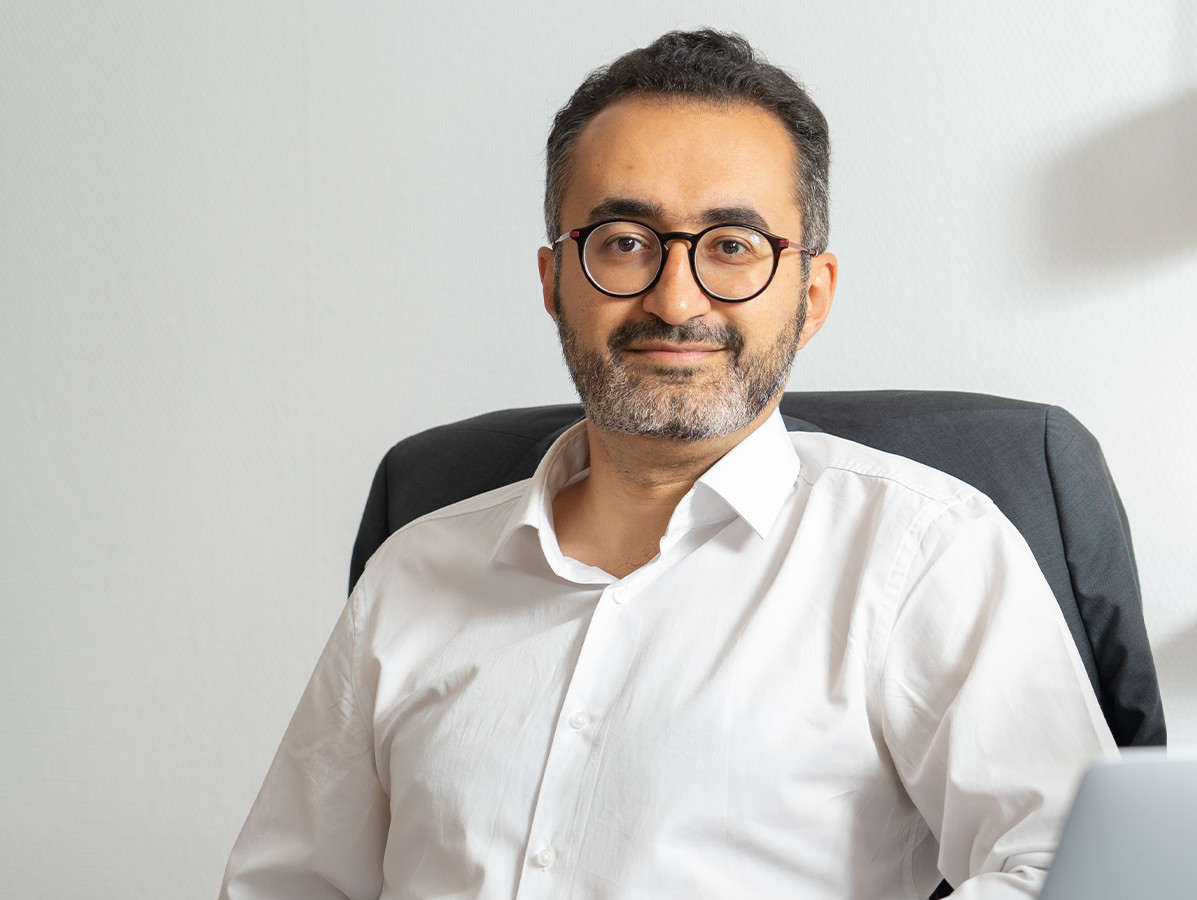
Sina Salim is one of the six innovation brokers at the Regional Centre for Technology (RCT) Foundation in Gelderland. As regional manager for the FoodValley and Noord-Veluwe region, he helps food companies and other entrepreneurs in the region with their innovation in the field of Smart Industry and Circular Biobased Economy. "In the maze of financing schemes and partnerships, I help SMEs to realise their innovation ambitions."
'The food processing industry owns a gigantic database of information'
Sina Salim helps companies with questions and bottlenecks in testing new processes, products and scaling up "From invention to market," he says. "Depending on the question, we take different paths. The starting point is always to find out what specific knowledge the entrepreneur needs for his or her problem, and then to determine where to find that expertise. We have an extensive network, within and outside our own areas of expertise, with companies, knowledge institutes and governments."
"The food industry has a reputation for being conservative. And with good reason; the industry is bound by strict legislation, so they cannot 'just' do things differently. Yet it is one of the most innovative sectors in this country. Precisely because the products have to be food-grade, strict hygiene regulations apply. Every hand that does not touch the product is therefore a concern less. The level of automation has therefore always been high. Moreover, the sector has to deal with large volumes and relatively small margins. Due to the high wages in the Netherlands, it is difficult to do everything manually anyway, and competition between companies is increasing. Enough reasons to automate and digitise."
"Very often they have to do with issues concerning the production system. SMEs want to increase labour productivity, produce more efficiently, more cheaply and more economically; that is the common thread in the type of questions we receive. Sometimes a question is answered with one phone call, in other cases it takes longer. A common obstacle at the moment is that the software of machines and applications in production do not connect well with each other. For example, a robot arm has been installed, but the software does not match the rest of the production line and the supplier cannot deliver the desired result. They ask us to help them find a system integrator that can.
Or a company wants to further develop a product that does not yet exist, which requires a substantial investment with a large amount of risk capital. We know which investments are eligible and the available financing options. Oost NL (East NL), the development company of the east of the Netherlands, has resources for feasibility studies and risk-bearing investments, for example. We can offer support in applying for and submitting a subsidy application, or for a Rabo Innovation Loan, a product created especially for Dutch start-ups that do not qualify for a bank loan due to a lack of proven results and/or cash flow. There are also all kinds of partnerships that stimulate innovation, and knowledge and/or educational institutions when it comes to a demand for fundamental research, with whom we can bring companies into contact."

"That the food processing industry owns a gigantic database of information. Production companies are now full of sensors, cameras, weight meters and so on. Until 5 to 10 years ago, data collection was mainly administrative. The legislator stipulated that the data had to be retained for quality control purposes and if something went wrong. Since the rise of Artificial Intelligence (AI), that data has become more relevant; you can use it to make predictions, better match supply and demand, make production steps more efficient...".
A very new technique is 'digital twinning'. In the past, whenever you had an idea for a new production line, you first built it on a small scale and ran a test run. You implemented improvements where necessary. When you finished testing, you would build a large-scale version of the line. Nowadays, it is possible to reproduce the entire production environment completely digitally, down to a very detailed level. This is possible thanks to all those sensors in the factory that collect data; without reliable data and its availability, it is not possible to make a good model. Once you have a good twin model, you can then change and adjust everything in it virtually, run through various scenarios and calculate what the effect is."
"Yes it is! A cheese packer called us with a problem: a lot of waste was occurring in his company. In the production line, plastic trays were placed on the conveyor belt; a robot hand placed slices of cheese in them; this was covered by a top layer of plastic and finally the packaging was sealed. However, the placement of the cheese slices was not always accurate: sometimes a slice of cheese would get between the tray and the seal, which then failed to close. The cheese packer had a very advanced camera system that took a picture of each package and was intelligent enough to decide: does this package meet the requirements or not? Based on the outcome, another robot arm picked the faulty packages off the conveyor belt and threw them in the bin. The cheese packer wanted to bring the error rate to zero. But how? It turned out that enough data was generated to make a digital twin model. The robotic arm then sent real-time information to this twin model, which became increasingly lifelike. The twin model was used to carry out virtual tests to refine the movement and thus avoid errors. The real robot arm received the information from its digital twin and learned from the simulations. In this way, it also 'knew' what had to change in the control, and when, in order to avoid errors. If you consider that one per cent efficiency in production easily results in tons of savings, you understand that it is worth the investment."
"That's right, we see one startup after another moving abroad; to the US, Germany and Israel, among others. One of the biggest hurdles is getting capital. Funding is needed to start production on a larger scale. The bank or government that decides to invest, can choose: for you - with your good business case to scale up to a full scale production system -, or for that startup of a recently graduated PHD student - with a relatively shaky business case but a very good idea. The graduate student asks a ton, you ask triple. The smaller investment is often chosen. The current risk calculation model of capital providers in the Netherlands shows little understanding for young companies with an urge for innovation that want to scale up. In countries like the US, Germany and Israel, these kinds of new companies are much better understood and supported."

"Another barrier to scaling up is the Dutch legislation. A typical example is the startup that developed a new separation technology for medicinal cannabis. Normally, the active ingredients are extracted via heavily chemical and environmentally damaging / organic solvents. This startup had come up with a fundamentally different production system that was less environmentally polluting and still produced a product with a purity of 99.999 percent. The production system would cost a fraction of the usual method. In the Netherlands, regulation of cannabis for regular use is very strict, and for medicinal use even stricter. Only a few processors have received an exemption from the Ministry of Agriculture. These companies therefore have a kind of monopoly position. The company wanted to scale up, but could not get through the morass of legislation and permits; so they asked us if we could help. We tried for months; we did a lot of lobbying through the Rijksdienst voor Ondernemend Nederland (Netherlands Enterprise Agency), through Economische Zaken en Klimaat (Economic Affairs and Climate), through all kinds of channels. We suggested that it might be possible to conclude a kind of Green Deal? Or to start a pilot; not so much to get an exemption until the end of time, but mainly to be able to develop the technology further in the next three to four years, so that they could show that they could guarantee the quality requirements. Unfortunately, it did not work out that way. Eventually, this start-up left for Berlin. The legislation in Germany is different, they get full cooperation there. Very frustrating for us.
'There are hidden gems among them that we can't just let go'
"There are countless examples of Dutch companies that went abroad and later became very successful. That is a sore point, for the authorities but also for the banks. Things are starting to change. People realise that there are hidden gems in the pool of start-ups that we can't just let go.
Sina Salim
Sina studied and obtained a PhD in Bioprocess Technology at Wageningen University. During that time, his department was closely intertwined with the department of Food Technology. After his PhD, he worked as an Expert and Project Manager at Bioprocess Pilot Facility and Royal HaskoningDHV and as Manager Business Development at InnovatieLink, part of the Top Sectors policy of the Innovation and Knowledge Directorate of the Ministry of Economic Affairs and Climate Change. He was also a member of the Chemicals Top Team at the Ministry of Economic Affairs and Climate Change. As a board member, he was active for various organisations, such as the Royal Dutch Chemical Association ( Young KNCV), and the Young Royal HaskoningDHV. He was also responsible for the internationalisation of the Educational Institute of Wageningen University. Besides his job at RCT, he is currently a supervisory director at a local Rabobank.
Photos: ©Jan Willem Schouten/Jaws Media
Source: Vakblad Voedingsindustrie 2021